Get Kubernetes Certified
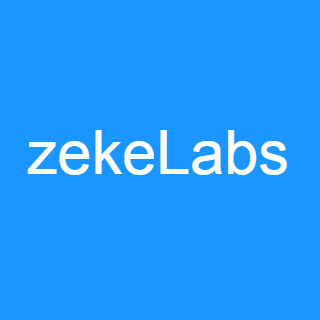 zekeLabs
zekeLabs
What is Kubernetes??
Kubernetes is increasingly becoming the de-facto standard for container-orchestration. It is used for deploying and managing microservice-based applications. It also helps in scaling and maintaining as well. It is open-source software that was initially released by Google in the year 2016, but now it is being maintained by Cloud Native Computing Foundation. Kubernetes helps build a distributed system on the top of any infrastructure and provides an automated platform to host and manage any microservices-based application. Different infrastructure providers have hosted Kubernetes on their own infrastructure and thus provide Kubernetes as a service (KAAS).
Why get certified by Kubernetes?
Kubernetes certification is provided by the Cloud Native Computing Foundation, the same not-for-profit organization that supports the development of Kubernetes. This makes the certificate very trustworthy. At the same time, the Kubernetes certification exam has a lot of hard scenario-based questions that measure the hands-on knowledge and analytical ability rather than just the theoretical knowledge-based MCQ. It is rather difficult to get certified on Kubernetes without having enough hands-on experience and guidance.
Since a lot of applications are getting refactored into microservices-based architecture there is a lot of demand for the Kubernetes-skills and in-turn certified application developers and administrators.
How to Get Kubernetes Certified??
CNCF offers three different certifications. Almost eighty percent of the syllabus overlaps in these exams. All the exams require an in-depth understanding of the Kubernetes and microservices-based ecosystem. CNCF offers Certified Kubernetes Administrator (CKA) for IT Admins and Certified Kubernetes Application Developer (CKAD) for professionals, and recently launched Kubernetes Certified Service Provider (KCSP) for organizations.
The three types of Kubernetes Certificates are:
1. Certified Kubernetes Administrator (CKA)
This certificate is meant for the administrators who can create, manage, and work with the complex and effective configuration of Kubernetes clusters. The duration of the exam is 3 hours and the candidates have to secure a minimum of 74% to pass the examination. During the exam, a lab-access is provided and the questions are based on some scenarios. The candidate needs to understand the problem and provide solutions by working on the cloud-based labs.
The marks distribution of CKA the exam and the areas that have to be covered for this examination are as follows:
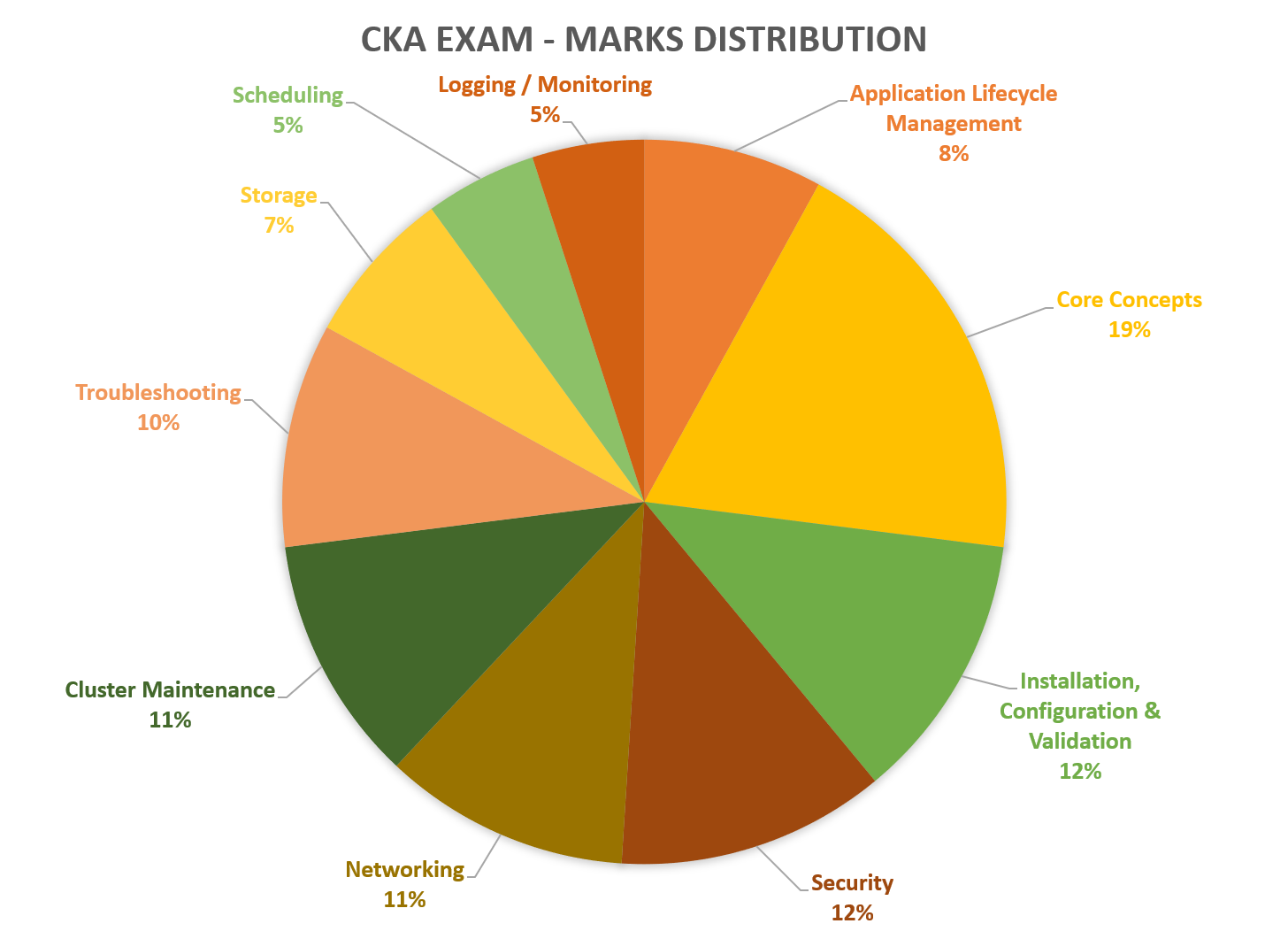
2. Certified Kubernetes Application Developer (CKAD)
This certification is more oriented towards the developer who builds and deploys the applications on the Kubernetes cluster. It tests the cloud-native application development skill in the context of Kubernetes and some core Kubernetes skills. The duration of the examinations is 2 hours and you have to score a minimum of 66% to pass the examination
The marks distribution in the exam and the areas that have to be covered for this examination are as follows:
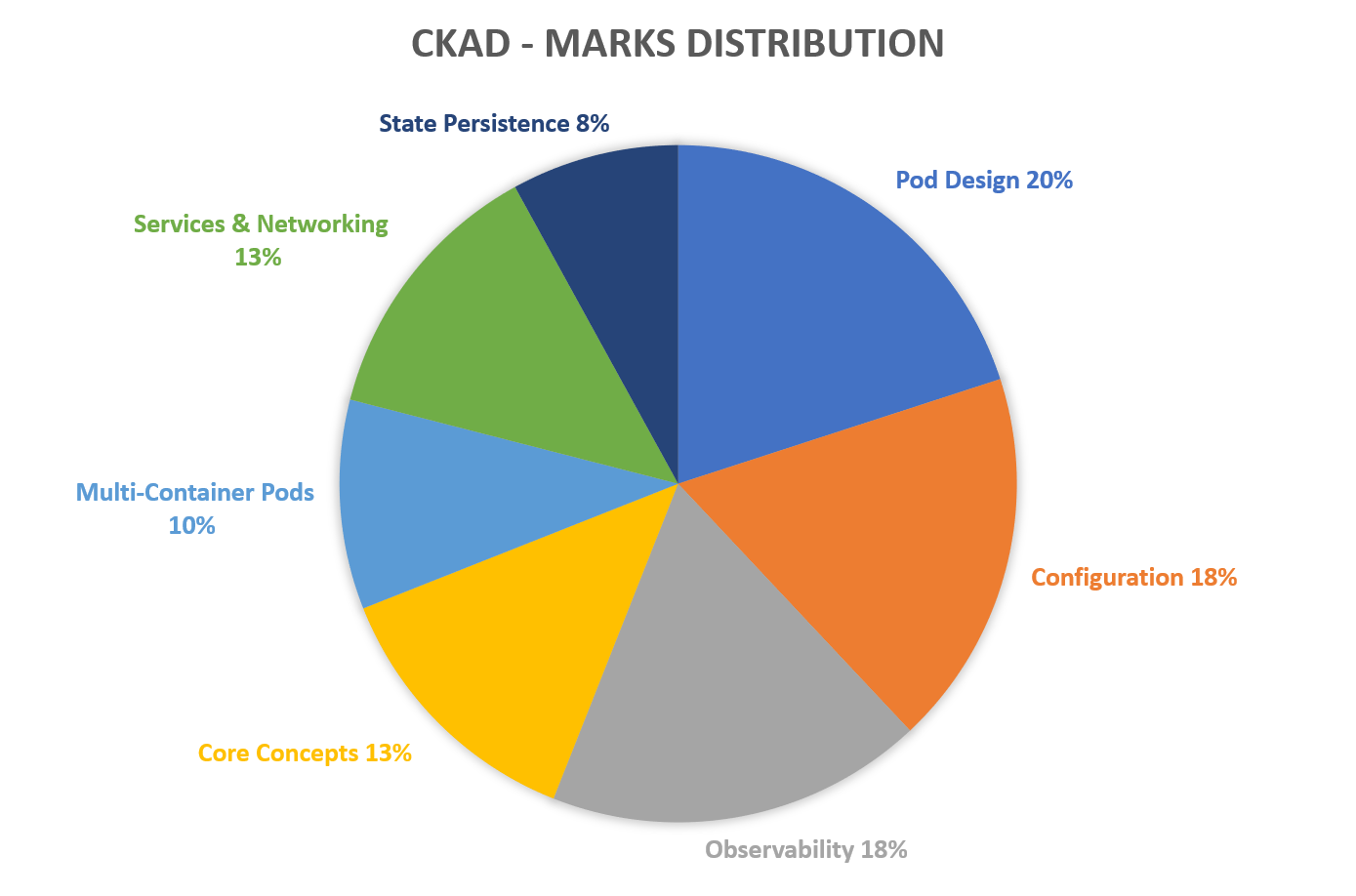
3. Kubernetes Certified Service Provider (KCSP) - For organizations
The KCSP program is provided to the vetted service providers who have deep experience helping enterprises successfully adopt Kubernetes. The KCSP program ensures that the organizations that are adopting Kubernetes are supported by well qualified and skilled service providers.
Requirements to get KCSP certified, are:
- Three or more engineers who pass the Certified Kubernetes Administrator (CKA not CKAD) exam.
- A business model to support enterprise end-users, including putting engineers at a customer site
- Be a CNCF member
How to Get Prepared for Kubernetes Certificates??
Like the other exam, studying for Kubernetes exams is not at all easy, but it isn't impossible as well. You need to devote a lot of time practicing for the examination. You need to not only have conceptual clarity but also hands-on experience in managing, working, and troubleshooting Kubernetes clusters and applications. The Certified Kubernetes Administrator (CKA) certification exam is more of a test of your cluster skills whereas the Certified Kubernetes Application Developer (CKA) certification exam is a test of the core concepts and developer-oriented skills in a cloud-native ecosystem.
The following steps will help you prepare for both the examinations
- You need to know the basic requirements and business use case of Kubernetes and microservices-based applications.
- You should practice a lot on the Kubernetes cluster including the installation and configuration and troubleshooting part.
- A lot of cloud-based hosted Kubernetes clusters should be leveraged.
- Practice with the case-study and scenario-based questions.
Even though passing the CKA and CKAD exams are very difficult, but following these steps will surely help you prepare better for the exams.
Benefits of being Kubernetes Certified
Once you pass these examinations, this validates your Kubernetes skill. A lot of companies are looking for certified Kubernetes professionals to build, manage, and deploy Kubernetes clusters. Since Kubernetes is a platform to build other platforms, it is imperative for all the digital organizations to first host and manage Kubernetes by skilled and certified professionals.
The journey to get certified on Kubernetes is challenging, adventurous, and a lot of fun.
All the best!
While you are here, check out our training in Kubernetes.

Keywords : kubernetes Technology training career
Recommended Reading
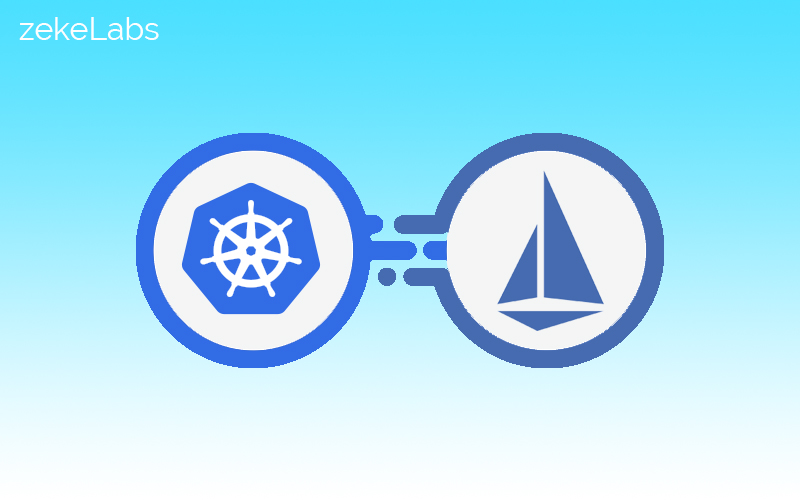
Getting started with ISTIO
Istio is a tool to handle service mesh. Istio enables one you to connect, secure, control, and observe microservices that are part of a cloud-native application. Istio uses Envoy as a service proxy that in turn is used as a sidecar container. Istio is orig...
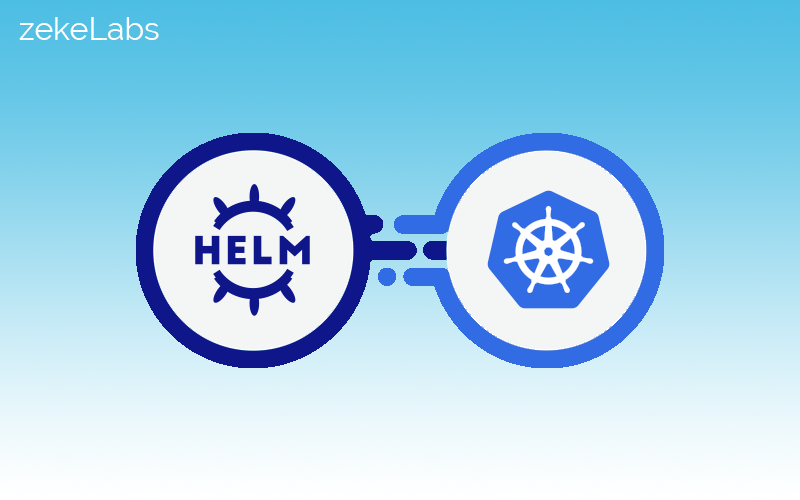
How to get started with Helm on Kubernetes?
Helm is a package manager, which provides an easy way to manage and publish applications on the Kubernetes. It was first built by the collaboration between Dies and Google in the year 2018.
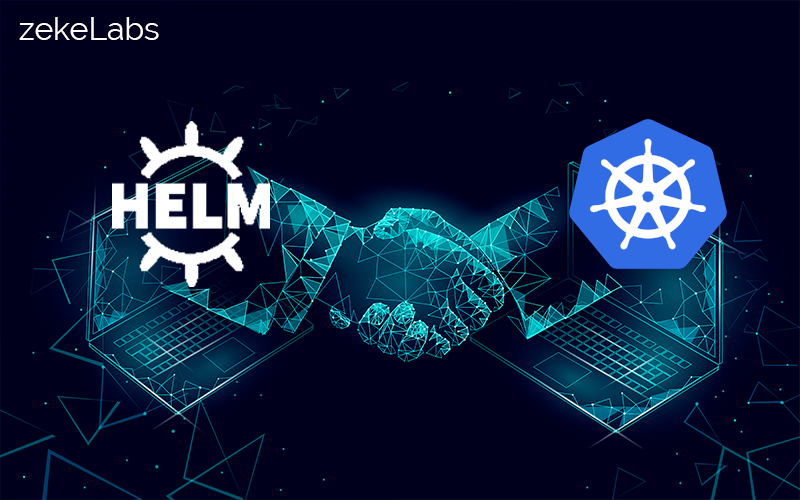
What is Helm in Kubernetes?
In this article, we would be discussing what Helm is and how it is used for the simple deployment of applications in the Kubernetes network. Continue reading to learn more about Helm in Kubernetes.
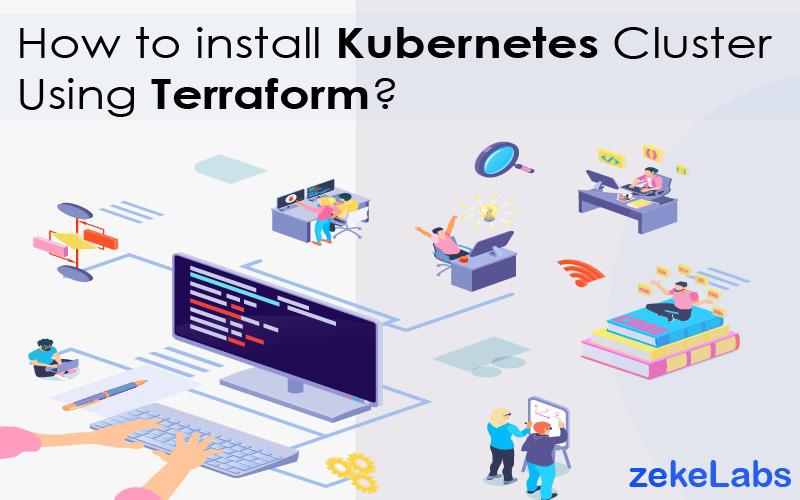
How to install Kubernetes Clusters Using Terraform?
Kubernetes is a container orchestration platform that can be used to deploy and manage a containerized applications. Generally, Microservices-based applications are first converted into Docker (or other container runtimes) images and then these microservice...
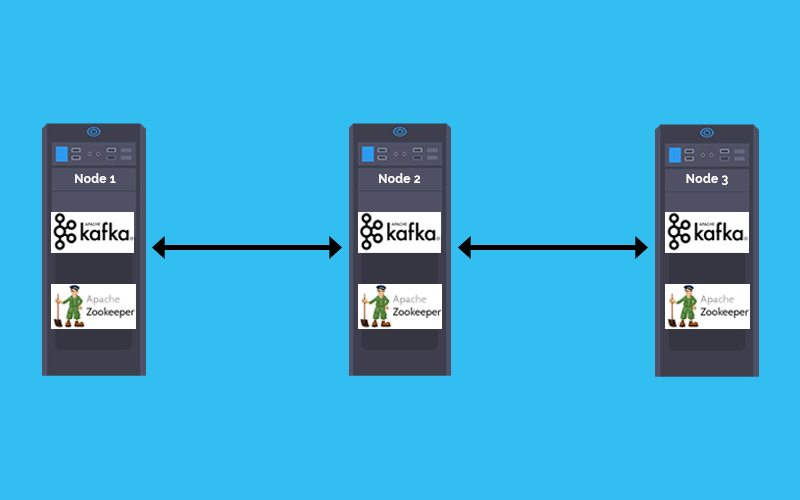
How to deploy Kafka and Zookeeper cluster on Kubernetes
In a Microservices based architecture message -broker plays a crucial role in inter-service communication. The combination of Kafka and zookeeper is one of the most popular message broker. This tutorial explains how to Deploy Kafka and zookeeper stateful se...
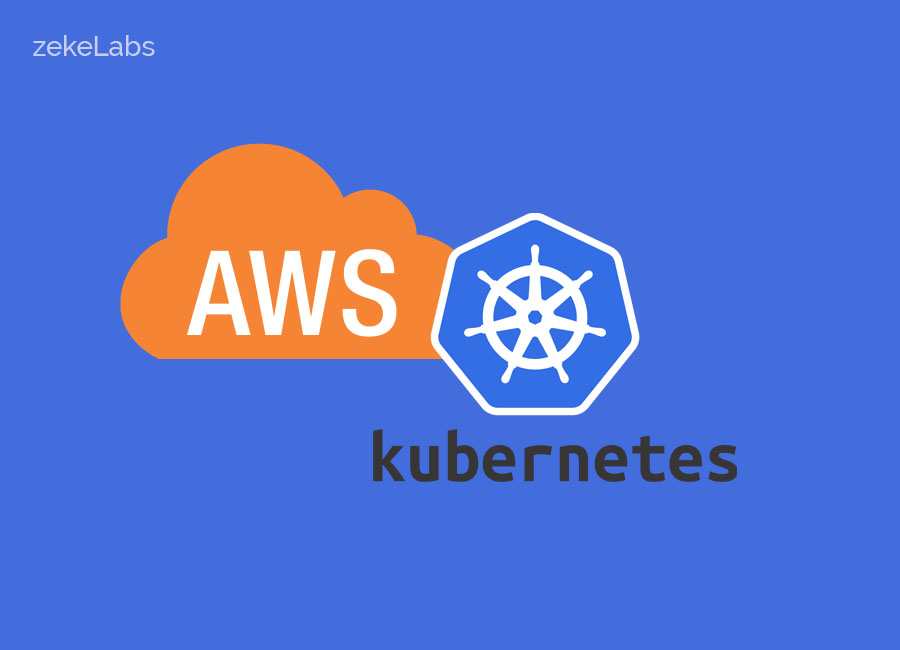
How to install Kubernetes Cluster on AWS EC2 instances
When someone begins learning Kubernetes, the first challenge is to setup the kubernetes cluster. Most of the online tutorials take help of virtual boxes and minikubes, which are good to begin with but have a lot of limitations. This article will guide you t...
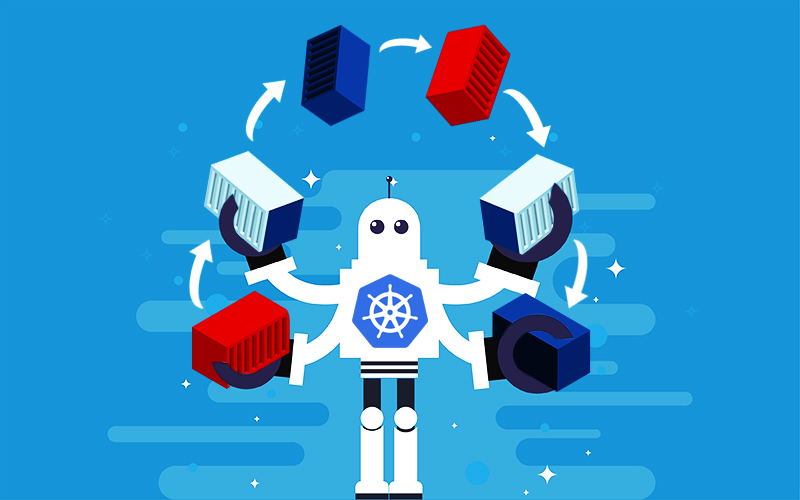
Container is the new process and Kubernetes is the new Unix.
Once a microservice is deployed in a container it shall be scheduled, scaled and managed independently. But when you are talking about hundreds of microservices doing that manually would be inefficient. Welcome Kubernetes, for doing container orchestration ...
